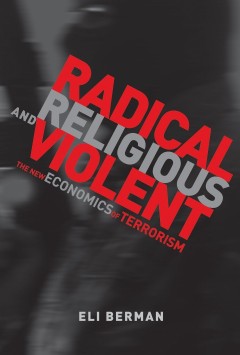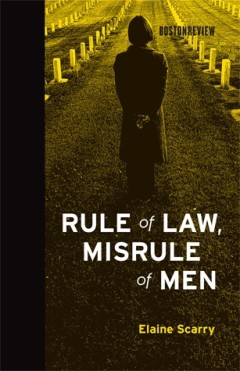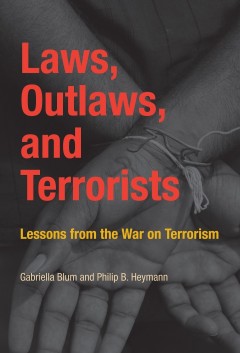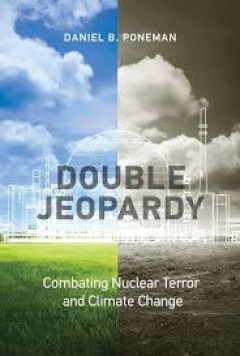Filter by

Radical, Religious, and Violent: The New Economics of Terrorism
How do radical religious sects run such deadly terrorist organizations? Hezbollah, Hamas, Lashkar-e-Taiba, and the Taliban all began as religious groups dedicated to piety and charity. Yet once they turned to violence, they became horribly potent, executing campaigns of terrorism deadlier than those of their secular rivals. In Radical, Religious, and Violent, Eli Berman approaches the question …
- Edition
- -
- ISBN/ISSN
- 9780262258555
- Collation
- 1 online resource (xi, 300 pages) :illustrations, maps
- Series Title
- -
- Call Number
- -

Rule of law, misrule of men
This book is a passionate call for citizen action to uphold the rule of law when government does not. Arguing that post-9/11 legislation and foreign policy severed the executive branch from the will of the people, Elaine Scarry in Rule of Law, Misrule of Men offers a fierce defense of the people's role as guarantor of our democracy. She begins with the groundswell of local resistance to the 200…
- Edition
- -
- ISBN/ISSN
- 9780262266116
- Collation
- 1 online resource (xxii, 191 pages).
- Series Title
- -
- Call Number
- -

Laws, Outlaws, and Terrorists: Lessons from the War on Terrorism
"In an age of global terrorism, can the pursuit of security be reconciled with liberal democratic values and legal principles? During its "global war on terrorism," the Bush administration argued that the United States was in a new kind of conflict, one in which peacetime domestic law was irrelevant and international law inapplicable. From 2001 to 2009, the United States thus waged war on terro…
- Edition
- -
- ISBN/ISSN
- 9780262289207
- Collation
- 1 online resource (xxi, 225 pages).
- Series Title
- -
- Call Number
- -

Double jeopardy :combating nuclear terror and climate change
Making the case that we can use nuclear power to combat climate change even as we reduce the risks of nuclear terror. Humanity faces two existential threats: nuclear annihilation and catastrophic climate change. Both have human origins, and both are linked to the use of nuclear energy. Inherent in the use of atomic fission is the risk that the technology and materials can be diverted to terrori…
- Edition
- -
- ISBN/ISSN
- 9780262353687
- Collation
- 1 online resource (288 pages) :illustrations.
- Series Title
- -
- Call Number
- -

Beyond 9/11 :homeland security for the twenty-first century
Drawing on two decades of government efforts to secure the homeland, experts offer crucial strategic lessons and detailed recommendations for homeland security.For Americans, the terrorist attacks of September 11, 2001, crystallized the notion of homeland security. But what does it mean to secure the homeland in the twenty-first century? What lessons can be drawn from the first two decades of U…
- Edition
- -
- ISBN/ISSN
- 9780262361330
- Collation
- 1 online resource.
- Series Title
- -
- Call Number
- -

WMD terrorism :science and policy choices
Terrorism by means of weapons of mass destruction (WMD) has been studied for decades - since the Cold War and fears of secret agents with suitcase-sized atomic bombs. Although WMD research has accelerated since September 11, 2001, much of this scholarship is hard to find, forcing nonspecialists to fall back on gut instinct and Beltway clich?es. This book provides a review of what scientists and…
- Edition
- -
- ISBN/ISSN
- 9780262012980
- Collation
- 1 online resource (x, 608 pages) :illustrations, maps
- Series Title
- -
- Call Number
- -

Conflict and complexity : countering terrorism, insurgency, ethnic and region…
Complexity science affords a number of novel tools for examining terrorism, particularly network analysis and NK-Boolean fitness landscapes as well as other tools drawn from non-linear dynamical systems modeling. This book follows the methodologies of compex adaptive systems research in their application to aaddressing the problems of terrorism, specifically terrorist networks, their structure …
- Edition
- -
- ISBN/ISSN
- 9781493917044
- Collation
- x, 292 pages : illustrations (some color), color maps ; 24 cm.
- Series Title
- -
- Call Number
- 303.625

Militant Jihadism: Today and Tomorrow
Jihadist militants keep being a global threat. Many observers suggest that a transformation is likely to happen in their organisation, operation, mobilisation, and recruitment strategies, particularly after the territorial decline of the “Caliphate” of the “Islamic State.” This volume explores different aspects of the future trajectories of militant jihadism and the prospective transfor…
- Edition
- Vol. 6.0
- ISBN/ISSN
- 9789461663023
- Collation
- -
- Series Title
- -
- Call Number
- 297.46 MIL m
 Computer Science, Information & General Works
Computer Science, Information & General Works  Philosophy & Psychology
Philosophy & Psychology  Religion
Religion  Social Sciences
Social Sciences  Language
Language  Pure Science
Pure Science  Applied Sciences
Applied Sciences  Art & Recreation
Art & Recreation  Literature
Literature  History & Geography
History & Geography